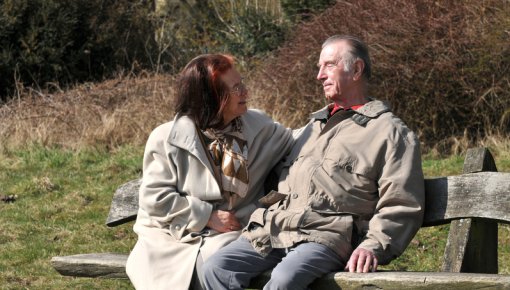Allida S, Cox KL, Hsieh CF et al. Pharmacological, psychological, and non-invasive brain stimulation interventions for treating depression after stroke. Cochrane Database Syst Rev 2020; (1): CD003437.
Ayerbe L, Ayis S, Wolfe CD et al. Natural history, predictors and outcomes of depression after stroke: systematic review and meta-analysis. Br J Psychiatry 2013; 202(1): 14-21.
Crocker TF, Brown L, Lam N et al. Information provision for stroke survivors and their carers. Cochrane Database Syst Rev 2021; (11): CD001919.
Deutsche Gesellschaft für Allgemeinmedizin und Familienmedizin (DEGAM). Schlaganfall (S3-Leitlinie). AWMF-Registernr.: 053-011. 2020.
Eng JJ, Reime B. Exercise for depressive symptoms in stroke patients: a systematic review and meta-analysis. Clin Rehabil 2014; 28(8): 731-739.
Legg LA, Lewis SR, Schofield-Robinson OJ et al. Occupational therapy for adults with problems in activities of daily living after stroke. Cochrane Database Syst Rev 2017; (7): CD003585.
Minshall C, Pascoe MC, Thompson DR et al. Psychosocial interventions for stroke survivors, carers and survivor-carer dyads: a systematic review and meta-analysis. Top Stroke Rehabil 2019; 26(7): 554-564.
Robinson RG, Jorge RE. Post-Stroke Depression: A Review. Am J Psychiatry 2016; 173(3): 221-231.
Saunders DH, Sanderson M, Hayes S et al. Physical fitness training for stroke patients. Cochrane Database Syst Rev 2016; (3): CD003316.
Xu XM, Zou DZ, Shen LY et al. Efficacy and feasibility of antidepressant treatment in patients with post-stroke depression. Medicine (Baltimore) 2016; 95(45): e5349.
IQWiG-Gesundheitsinformationen sollen helfen, Vor- und Nachteile wichtiger Behandlungsmöglichkeiten und Angebote der Gesundheitsversorgung zu verstehen.
Ob eine der von uns beschriebenen Möglichkeiten im Einzelfall tatsächlich sinnvoll ist, kann im Gespräch mit einer Ärztin oder einem Arzt geklärt werden. Gesundheitsinformation.de kann das Gespräch mit Fachleuten unterstützen, aber nicht ersetzen. Wir bieten keine individuelle Beratung.
Unsere Informationen beruhen auf den Ergebnissen hochwertiger Studien. Sie sind von einem Team aus Medizin, Wissenschaft und Redaktion erstellt und von Expertinnen und Experten außerhalb des IQWiG begutachtet. Wie wir unsere Texte erarbeiten und aktuell halten, beschreiben wir ausführlich in unseren Methoden.

